Platonic vs. romantic
(Exploring the questions out loud, in case it helps someone else, and for your feedback)
Recently, a friend and I were catching up on each other's lives when I asked her if she had considered dating her ex, who has become her good friend.
In light of my current relationship analysis, her reply struck me.
"We talked about it. We decided we were better as friends. Neither of us was willing to risk it."
Risk what?
Risk ruining a friendship by dating each other?
Am I hearing this correctly? You would stop being good friends if you became lovers? We have to choose between being friends or being lovers?
What's that about?
This question has been running in the back of my mind since I left my first partner, the one who crossed lines of abuse while saying she adored me. When I finally mustered up the courage to say that I didn't feel adored within our relationship, she spat, “Don't you dare tell me who I do or don't adore!” This has become an iconic phrase in my repertoire.
Why would it risk ruining a friendship to turn it into a romantic relationship?
What is that switch, that shift, that makes the difference?
Is it the weight of cultural narratives? This or that is the way intimate partners must act, according to all we’ve been fed from the silver screen and social media?
Is it clashing expectations? Unrealistic expectations? Expecting them to fit the fantasies we carry in our heads, then feeling disappointment and finding fault with them when they inevitably don’t measure up?
Is it a sense of entitlement? Or of ownership (that we possibly mistake for belonging)?
Is it some of each of these factors?
Here's a question: Does commitment carry with it a sense of permission to take someone for granted?
That can't be it. In my experience, my friends and I are committed to each other, and we cherish each other and don’t take each other for granted and start harping on each other. These aren't tacit commitments on my part, either. I freely tell my close friends what I enjoy and appreciate about them, and that they're stuck with me for the long term. And we equally prioritize and cultivate our bond by seeking each other out and showing up for each other, and this builds trust between us.
Why is the bar for respectful and caring behavior lower for romantic relationships than for friendships?
I want to understand this phenomenon better than I do.
You may say that familiarity breeds contempt. I disagree; I would say that judgment breeds contempt. Acceptance nourishes affection, and respect builds protective bonds. And folks, reciprocal interest is fire. It took me a while to value myself enough to hold out for reciprocity in my adult relationships.
Also on the topic of familiarity:
I’m not free to live with a romantic partner even if I wanted to; I’m a full-time family caregiver and mom. But even with a minimal amount of time spent together with my partners, I’ve experienced this downward slide with them and have felt taken aback each time. Why doesn't this happen in my platonic friendships? The honeymoon isn't ever over. Because there was no honeymoon to begin with? Why not? Why do romantic relationships sometimes begin with a honeymoon period? My first one did; it taught me not to trust that infatuation feeling, and I haven't experienced it since.
It cannot be true that familiarity breeds contempt. After twenty-eight bitter years of judgmental familiarity with each other, my co-parent Joe and I began to choose differently. We chose to let go of preconceived ideas of who we were, to prioritize understanding over ego, to own our shit, and to cultivate genuine acceptance, appreciation, and affection for each others’ real selves. Four years of hard work later, we are close platonic friends, despite the stresses of co-parenting this household while being as incompatible as two humans could be. By the way. That's not an exaggeration.
I don't mute myself with Joe as I have with other primary relationships, like I did with my father before him or my romantic partners after him. He and I are equally committed to staying together for the well-being of everyone involved. We’ve had to figure out how to do better than punishing each other for speaking up about the tough stuff, and we're still learning.
Given enough time and depth, intimate relationships will find old wounds from past primary relationships and prick and prod at them. If that's not happening to both partners, it’s not genuine reciprocal intimacy with its attendant vulnerabilities.
Observing myself from the outside as I'm pulled toward unhelpful past patterns is the only thing preventing me from repeating them.
Right now, trying to be in romantic relationships feels to me like conceiving babies and losing them over and over. At any point, I’m free to decide that it's sensible to stop getting pregnant. Furthermore, only I can decide that for myself.
Or this:
Compulsively flipping the switch up and down with the same result when the bulb is burned out, unscrewed, or unplugged—isn't that the behavior of an unwell person?
Some people know they're meant to be single without attempting a relationship even once. It took me four, five, six attempts? I feel no desire to keep flipping that switch like a gambling addict with a slot machine.
What would you say to the woman who told you she was done trying to have a baby or to the compulsive gambler who decided they were done with casinos? “Don't give up now!” “Keep going!” No.
When I pay close attention to what my body tells me, she has a lot to say:
I don't feel like a messed up human when I’m not trying to be someone’s girlfriend.
Having to stand up for myself in a relationship is baseline stressful to my central nervous system.
I haven’t needed to spend life energy to stand up for myself inside my friend connections like I have in my romantic ones. We don't have to beg for respect; it's just present. There's no need to stand up for ourselves, we’re standing up for each other.
Some visceral deep part of me feels a heightened sense of responsibility within my romantic relationships that isn't there in my platonic ones: Responsibility for the success or failure of the connection.
My partners’ expectations of me feel like a role I've never known how to fill. It’s that familiar dread combination of obligation plus confusion about what is expected of me. And finding out what their expectations are by failing them.
When I try to fit their expectations:
“I want you to just be yourself,” they say.
When I am just myself:
“Not like that,” they say. “That doesn't feel good to me.”
The entry fee to belong to a romantic partnership feels similar to the entry fee to belong to the evangelical club I left five years ago: Parts of myself. Do you know that since exiting religion, I haven’t once needed to give up parts of myself to feel good in the friendships I've formed?
I feel 100% unforced acceptance when with my good friends, no matter what is going on.
Here's a question I would ask a friend in my shoes:
Where do you feel love in your life right now? It can be anywhere! In your creativity, your people connections, your work.
Go there and cultivate it. Magnify it.
Creating love is an energy.
Cultivating love is an energy.
When you have it, own it.
Create your life as a space where you know how to flourish, and invite others in.
Hear what I'm saying: Not beg, invite.
People will show up.
The ones who show up because they want to be there.
And of those, sometimes a bond will form that is equally good for both of you.
And this connection is a gift, not to be grasped, but to be received and enjoyed and cultivated for as long as it is given.
My platonic friendships develop because we're drawn to each other and find that we enjoy each other exactly as we are. There’s no need to be different than we are for each other. Would it even be friendship, otherwise??
I already know how I want my relationships to feel, because my life is an abundance of the kind of love that feels to me like genuine love.
I am content, grateful, in awe—euphoric even—to be exactly where I am right now. My relationship with my reality is that I wouldn't change one thing.
I'm curious to hear your thoughts and your questions on any of this, oh readers. Anything to add to this conversation?
Ode to my close platonic friendships: Sullivan Lane by Dar Williams
She wasn't one of the misscripted lovers
That moved with the others
She didn't know why
They would make fun of the way she would druther
Just float up and hover between earth and sky
I wasn't able to keep my mind stable
Condition was labeled acute A.D.D.
They saw the problems and tried hard to solve 'em
But she only noticed the goodness in me

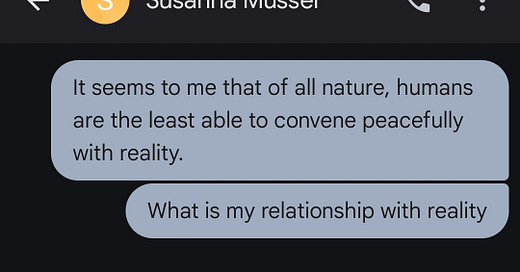



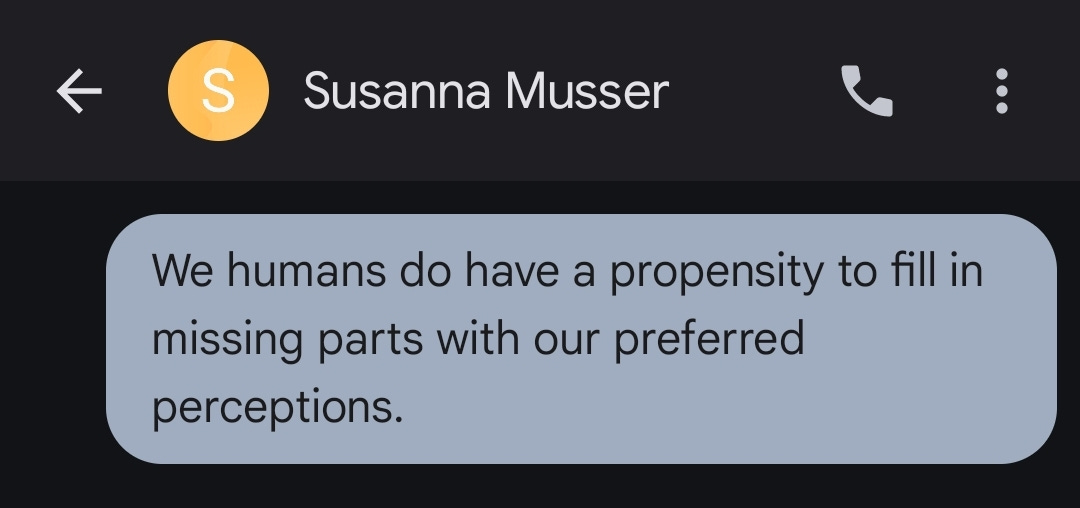
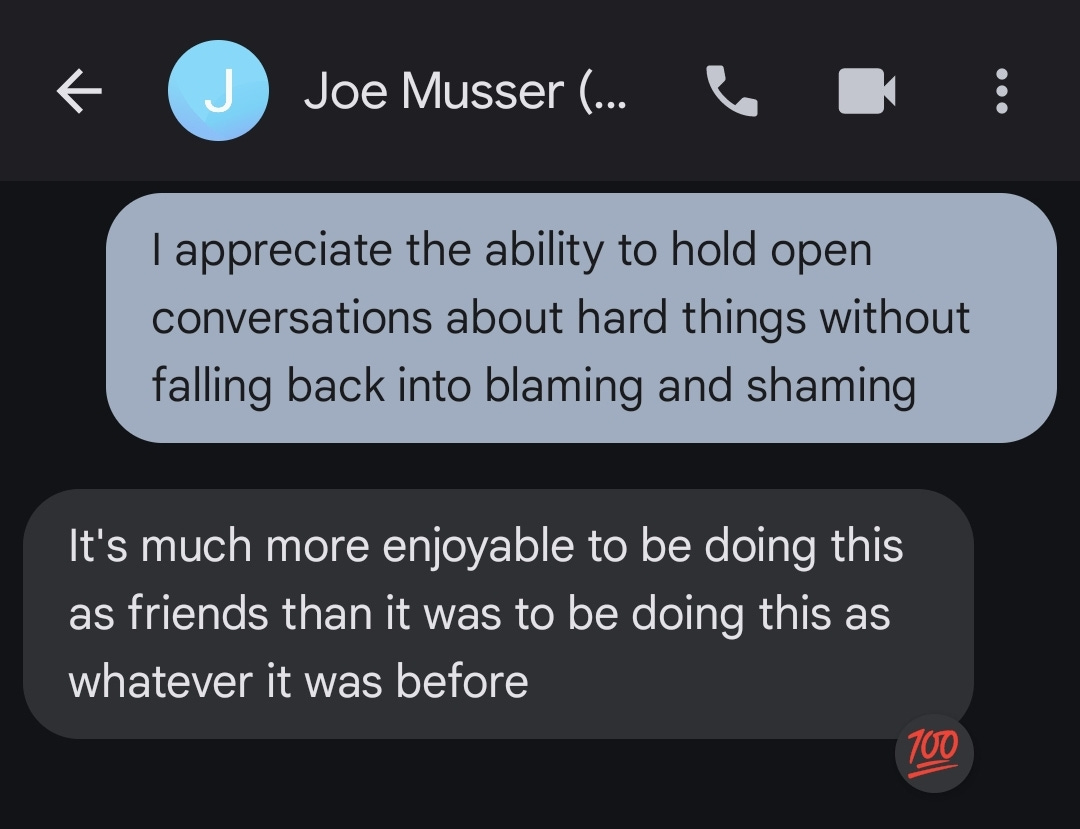
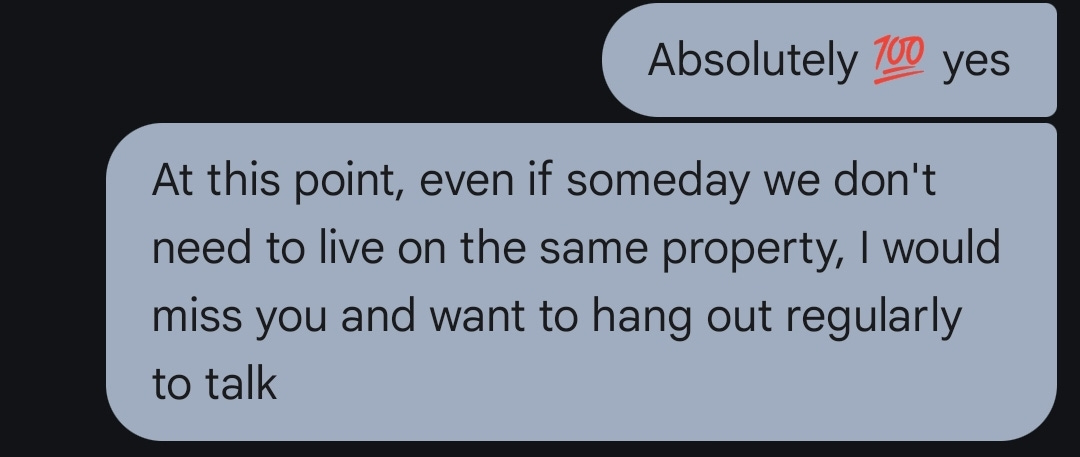
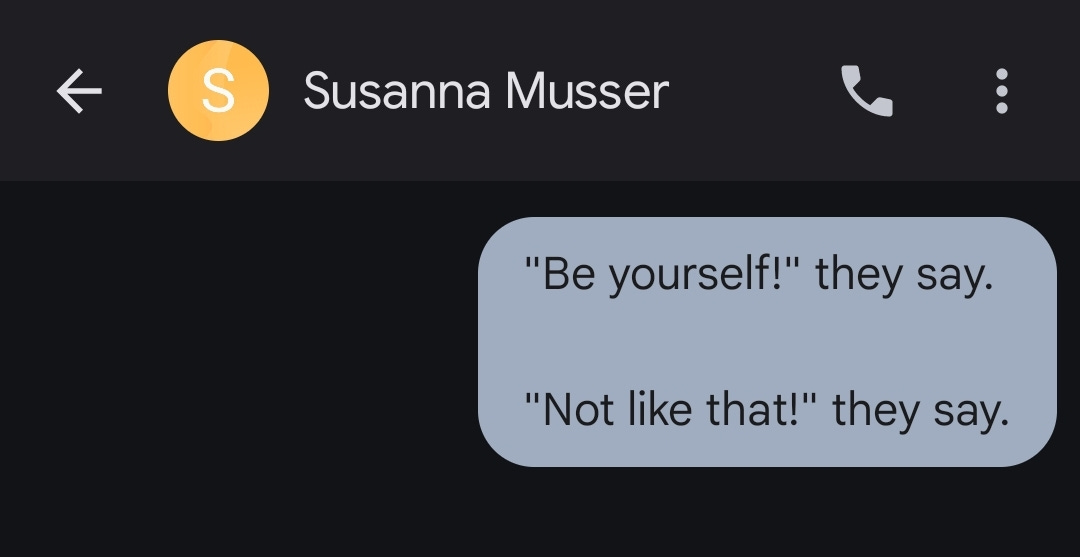
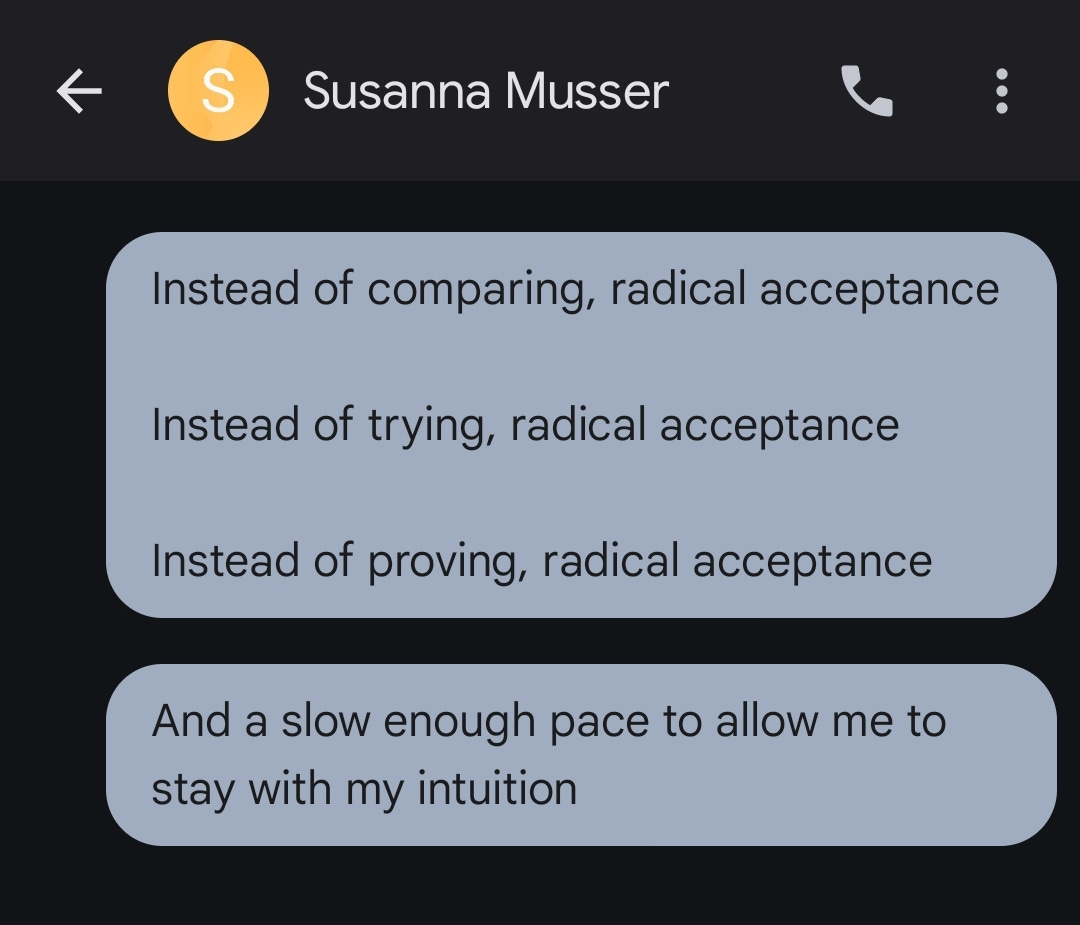
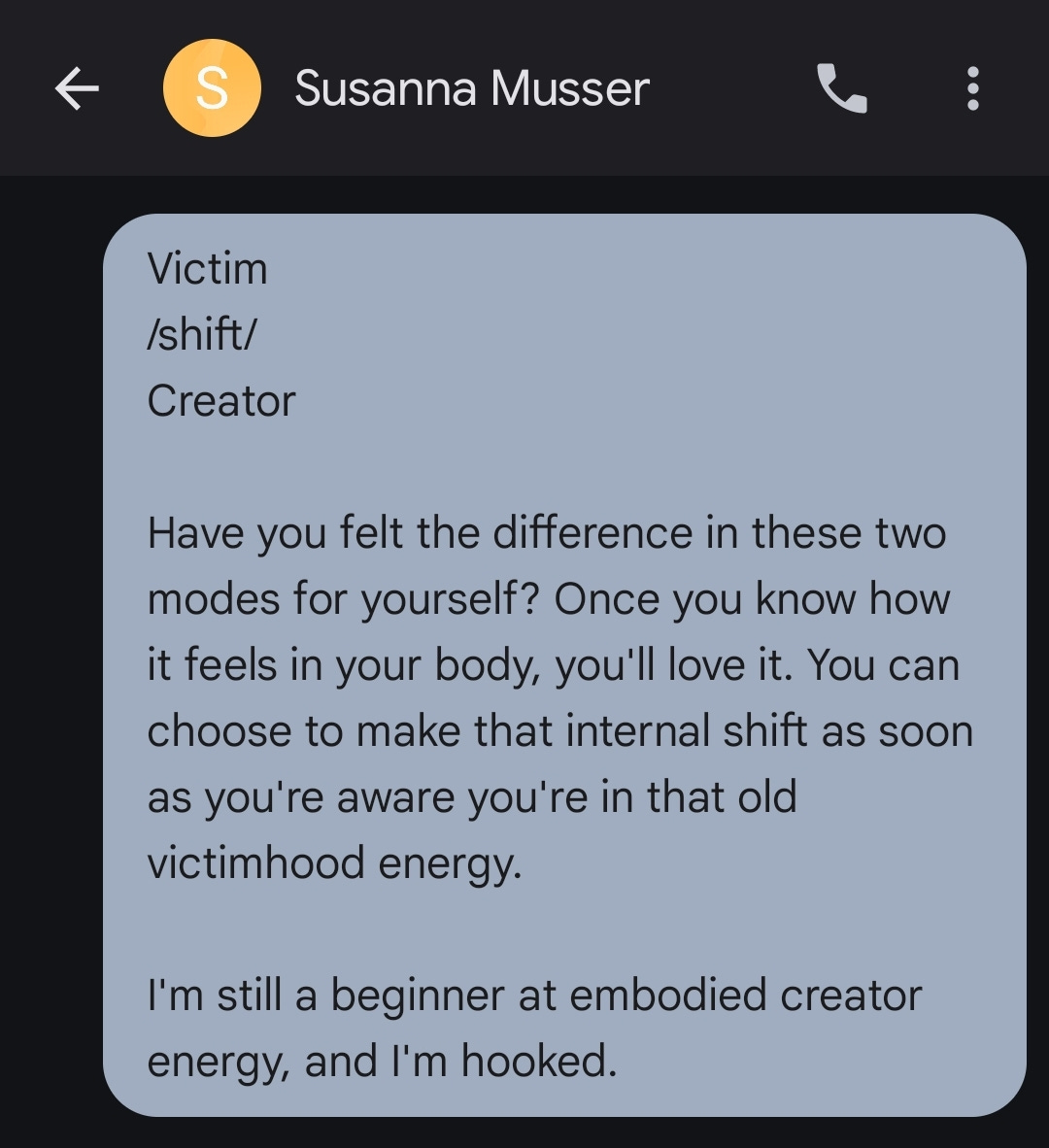
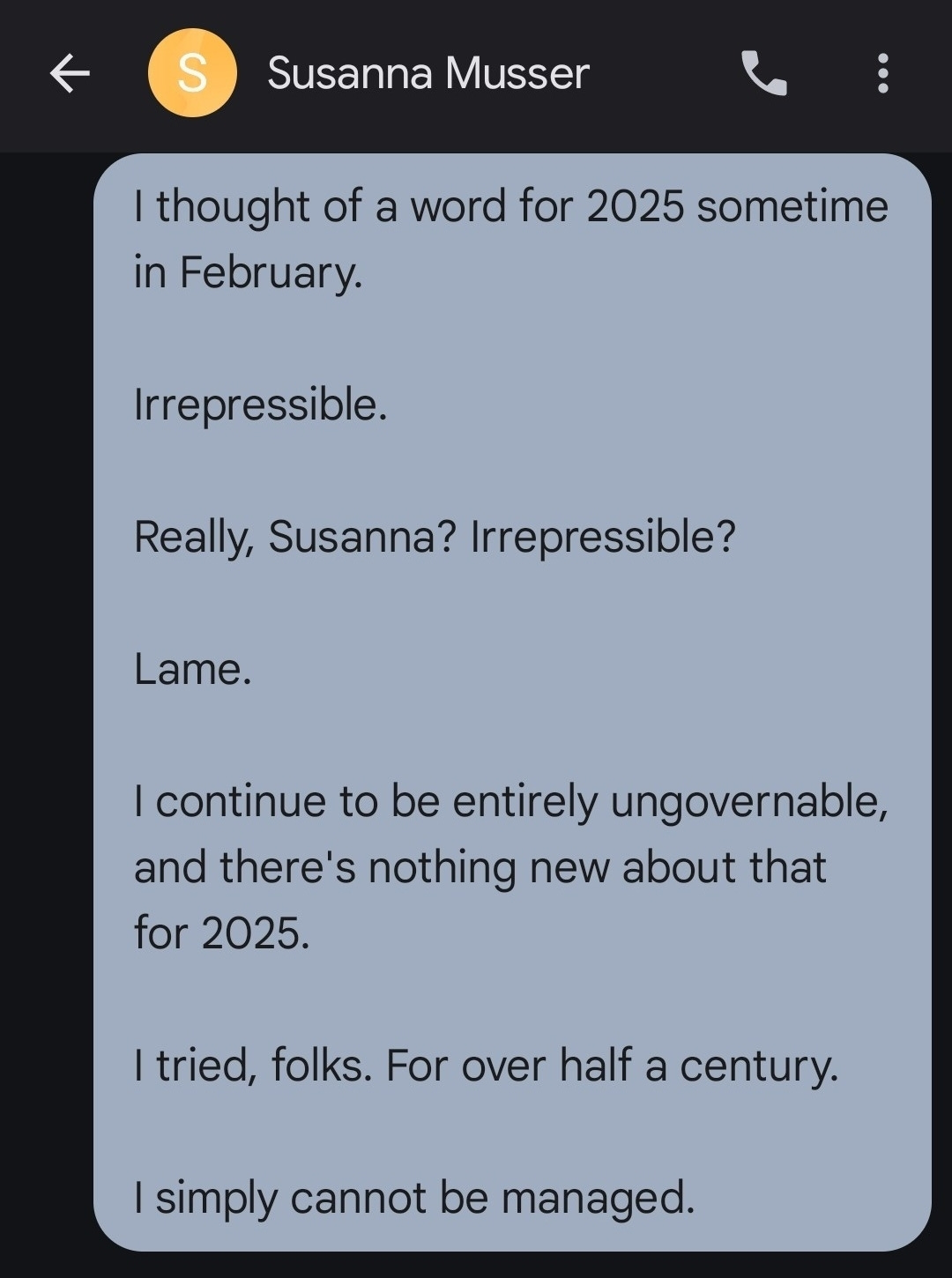
Thank you for this! So many interesting things to ponder in this post. I wonder if the difference between the romantic and friendship bond is the subconscious expectation that a romantic relationship creates "family" rather than a circle of friends, and as such we bring in all of the baggage we have about the way family felt for so many of us. Also, "family" is "for better or for worse", meaning it is a social structure that will carry us through times when we are not able to be good friends (sickness, trauma, overwhelm) and the relationship becomes "one-way" instead of "mutual". The moment romance enters a relationship, all of those unspoken expectations kick in and we drop a type of "mask" that we wear for the rest of the world, including our friends. Just some thoughts ...
Oh, hell fucking yeah!!! I'm Maria Thompson Corley and I approve this message!!